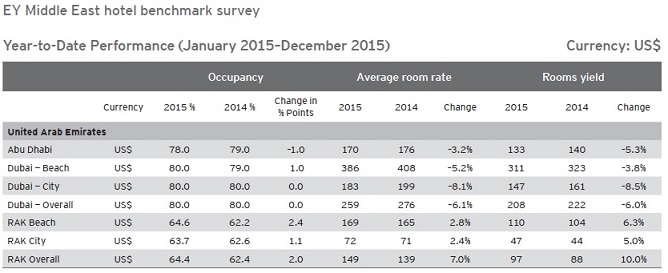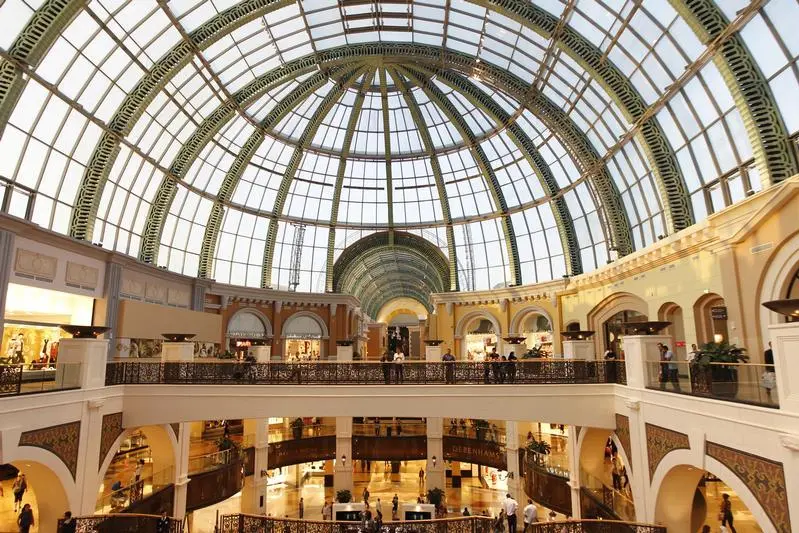PHOTO
When Dubai-based retail and leisure developer Majid Al Futtaim (MAF) published its 2015 audited results last month the top line figures were certainly positive: profit was up 28.8 percent on the back of an 8.2 percent rise in group revenue.
The group, which operates 14 shopping malls, including City Centre malls and Dubai's Mall of the Emirates, hotels, hypermarkets, supermarkets and cinemas across the region, reported consumer retail spending was up 6.5 percent and leisure and entertainment revenue was up 30.1 percent.
However, a closer look at the results showed that hospitality had registered a drop in revenue and was the group's weakest link among its portfolio.
While MAF's overall group revenue increased to 27.3 billion dirhams ($7.43 billion), revenue from its hospitality sector, which operates 12 hotels across the Middle East and North Africa (MENA), fell 6.8 percent year-on-year to 682 million dirhams. This compares to a year-on-year increase of 4.4 percent during 2014.
The mall operator's average revenue per available room declined by 9 percent year-on-year, mainly due to changes in market preference and increased competition due to the influx of new rooms coming onto the market, Shrimati Damal, senior vice president of group treasury at MAF, told Zawya in a phone interview.
"There is a preference for maybe two or three stars hotels than the higher end," she said. "The second thing happening is we had a 7 percent increase in supply [of rooms] for the year so we had to adjust to this."
The group unveiled its $100 million renovation of the Kempinski Hotel Mall of the Emirates in December, which also impacted revenues in the United Arab Emirates (UAE).
MAF's hotel revenue challenges were reflected across the UAE, especially in Dubai, according to the EY Middle East hotel benchmark survey, which was released in December 2015. It reported average room yields in Dubai last year were down 6 percent overall, while city properties were down 8.5 percent. 
Retail growth slows down
MAF's core sector, its malls, reported a 6.5 percent rise in 2015, which was almost half the 12 percent growth recorded the previous year.
Damal pointed to a number of reasons behind the slower growth, the first being challenging conditions in Egypt. The Cairo government has devalued the Egyptian pound against the dollar in a bid to encourage foreign investors and tourists to return to the country after periodic violence and political turmoil since the 2011 "Arab Spring" uprising.
"We do have a presence in Egypt. Last year we were impacted by the currency depreciation in Egypt and that is about 10 percent of our total revenue so that is a substantial difference in growth percentage," Damal said.
A change in the type of products bought by supermarket shoppers in the MENA region also contributed to the smaller percentage growth in retail goods in 2015. "In 2013 and 2014, when folks were feeling more exuberant, we did see a lot of sales of electronics. That has moved towards food [in 2015], which are lower value items," Damal said.
MAF holds exclusive rights to the Carrefour franchise in 38 markets across the Middle East, Africa and Central Asia, through which it operates 67 hypermarkets, 80 supermarkets and six convenience stores.
Upbeat outlook
Despite the challenges posed by market fluctuations in Egypt, slower retail sales growth and lower hospitality revenues, Damal was still upbeat in her outlook for 2016. "We do not honestly see a broad-based softness in the market," she said.
Governments in the Gulf Cooperation Council (GCC) region are focusing on the growth on non-hydrocarbon sectors such as tourism and retail to diversify their economies away from oil export revenues. Diversification efforts are expected to continue to support growth in the retail sector, with a 2015 report by Alpen Capital projecting GCC retail sales to grow at a compound annual growth rate of 7.3 percent between 2013 and 2018 to reach $284.5 billion.
Recent research forecast that the retail sector in Dubai will grow by 7.7 percent in 2016 and at an average 8.1 percent until 2020, whereby it will be valued at an estimated $52 billion, according to a report issued by Dubai Chamber of Commerce and Industry, which was based on data from research firm Euromonitor International and announced during the World Retail Congress event in the emirate earlier this month.
© Zawya 2016





















